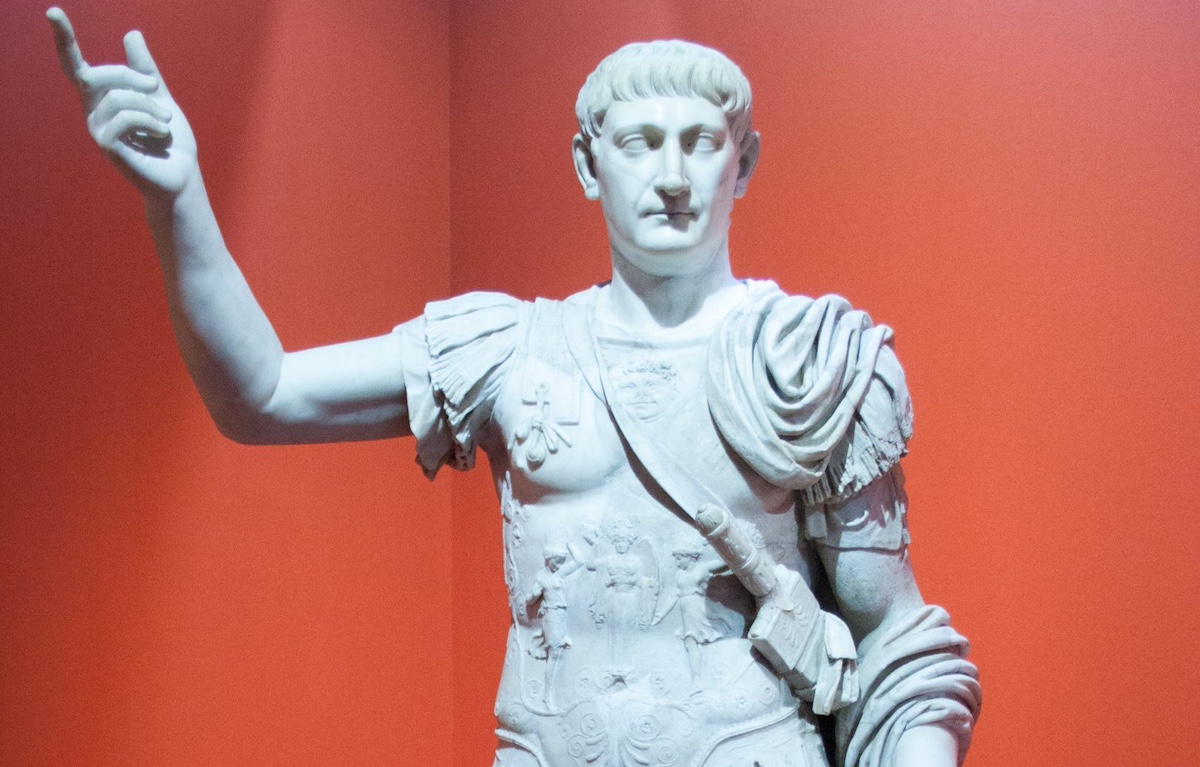The rise of Trajan to the imperial throne of Rome is a captivating tale of ambition, military prowess, and political maneuvering in the ancient world. From his humble origins to his eventual elevation as Emperor, Trajan's journey epitomizes the dynamic and often treacherous nature of Roman politics. In this detailed exploration, we unravel the intriguing story of how Trajan, a provincial outsider, ascended to the highest office in the Roman Empire.
Early Life:
Marcus Ulpius Traianus, known to history as Trajan, was born in 53 CE in the Roman province of Hispania Baetica (modern-day Spain). Coming from a non-aristocratic family, Trajan's rise through the ranks of Roman society was propelled by his exceptional military talents and unwavering dedication to the Roman state. He distinguished himself as a capable commander during his service in the Roman legions, earning the respect and admiration of his fellow soldiers and superiors alike.
Trajan's military career reached its zenith under the reign of Emperor Domitian, who recognized his leadership abilities and appointed him to various high-ranking positions within the Roman army. Trajan's campaigns in Germania and Dacia showcased his strategic acumen and battlefield prowess, solidifying his reputation as one of Rome's most formidable generals.
Accession to the Imperial Throne:
The death of Emperor Domitian in 96 CE plunged Rome into a period of uncertainty and upheaval, as rival factions vied for control of the imperial succession. Amidst the chaos, Emperor Trajan found himself thrust into the center of political intrigue, as supporters within the Senate and the military rallied behind his candidacy for the throne.
In a carefully orchestrated series of maneuvers, Trajan's allies engineered his accession to the imperial office, presenting him as a capable and charismatic leader who could restore stability and prosperity to the empire. With the backing of the Praetorian Guard and the Senate, Trajan was proclaimed Emperor in 98 CE, marking the beginning of his transformative reign.
Reforms:
As Emperor, Trajan wasted no time in implementing a series of reforms aimed at strengthening the Roman state and expanding its influence across the Mediterranean world. He focused on revitalizing the economy, investing in infrastructure projects, and promoting trade and commerce throughout the empire. Under Trajan's leadership, Rome experienced a period of unprecedented prosperity and cultural flourishing, known as the Pax Romana.
Trajan's governance was characterized by a commitment to justice, fairness, and the welfare of his subjects. He enacted laws to alleviate poverty, improve access to education, and ensure the equitable administration of justice. Trajan's benevolent rule endeared him to the Roman people, who regarded him as a wise and compassionate leader.
Military Campaigns:
One of Trajan's most enduring legacies is his ambitious military campaigns aimed at expanding the borders of the Roman Empire. His conquest of Dacia, a rich and strategically important region in modern-day Romania, brought immense wealth and prestige to Rome. The Trajan's Column in Rome immortalizes the triumph of his Dacian Wars, depicting scenes of battle and victory in intricate detail.
In addition to his conquests in Dacia, Trajan launched military expeditions into the eastern provinces, including Parthia (modern-day Iran) and Arabia. These campaigns further extended Roman control over vast territories and secured Trajan's reputation as one of Rome's greatest conquerors.
The ascension of Trajan to the imperial throne represents a pivotal moment in Roman history, marking the culmination of a remarkable journey from provincial outsider to revered Emperor. Through his military achievements, administrative reforms, and commitment to the welfare of his subjects, Trajan left an indelible mark on the Roman Empire, shaping its destiny for generations to come. His reign stands as a testament to the enduring legacy of ambition, courage, and leadership in the annals of ancient Rome.




